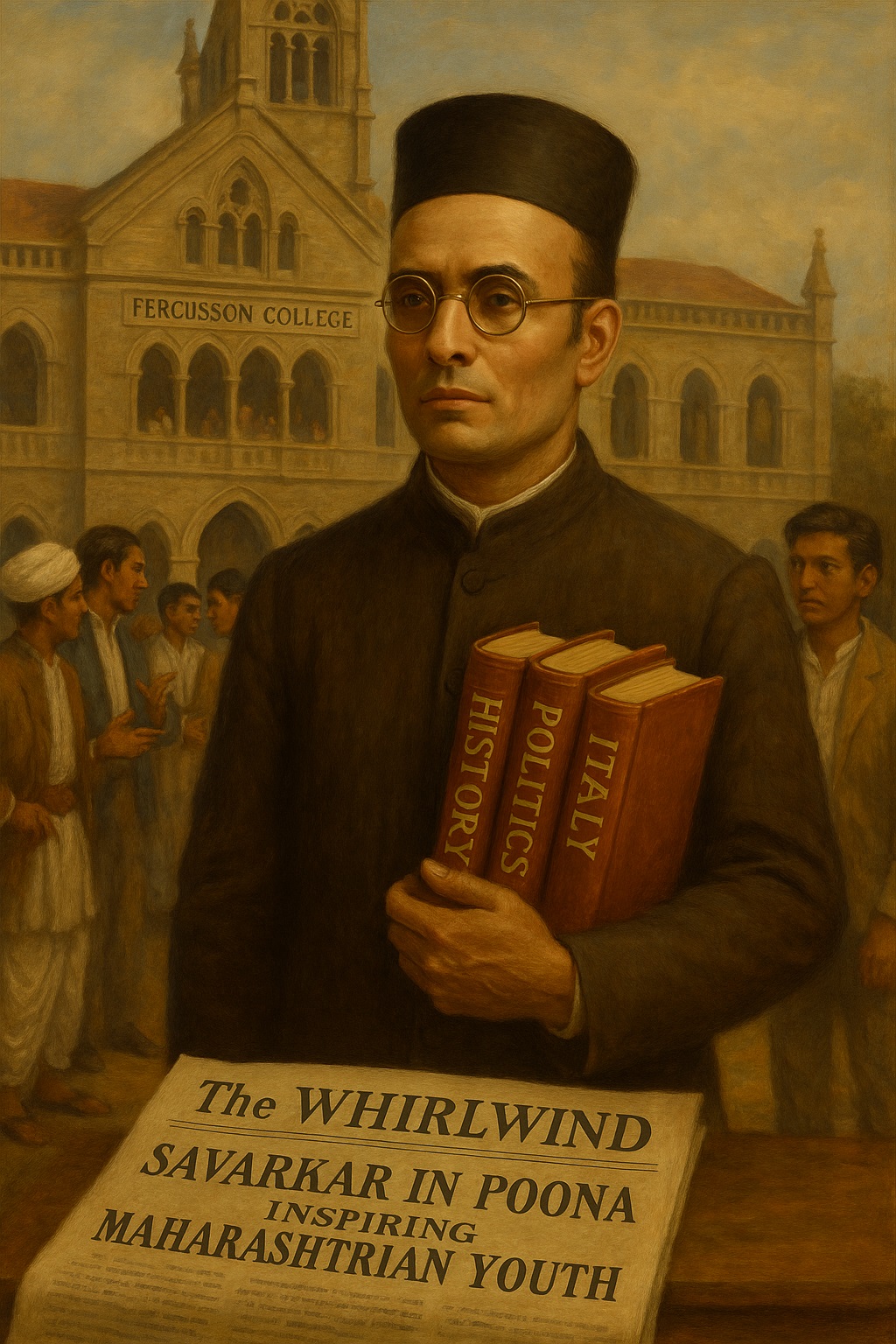On 24 January 1902, Vinayak Damodar Savarkar enrolled at the prestigious Fergusson College in Poona, undertaking a major in the arts with the aim of securing a Bachelor of Arts (B.A.) degree. At the turn of the century, Fergusson College had become a vibrant hub of nationalist thought and reformist energy. It attracted some of the most intellectually driven and politically conscious youth in Maharashtra. Poona itself, long associated with socio-political awakening and home to iconic leaders like Bal Gangadhar Tilak, had grown into a crucible of revolutionary ideas and a key node in the emerging Indian nationalist movement.
Even before setting foot in Poona, Savarkar was keenly aware of the ideological battlefield that awaited him. At a farewell gathering held in Nasik on the eve of his departure, he boldly declared his intention to use his time in Poona not merely for academic advancement, but as a launchpad for political transformation. He expressed his hope “that at Poona he would inspire the pick of Maharashtrian youth with revolutionary thoughts and spread the revolutionary tenets through them over all the districts of Maharashtra.”
This was not mere youthful enthusiasm—it was a strategic vision. Savarkar saw education as a means of mobilization. Fergusson College, with its assembly of brilliant young minds, would serve as fertile ground for nurturing a new generation of revolutionaries. His goal was clear: to awaken political consciousness, build ideological solidarity, and lay the groundwork for organized resistance against British colonial rule.
This period marked the beginning of Savarkar’s transformation from a brilliant student into a radical thinker and political organizer. His time in Poona was not only formative in terms of intellectual growth but was also instrumental in forging the revolutionary path that would define his life.
Sources:
GODBOLE, Vasudev Shankar. 2004. Rationalism of Veer Savarkar. Itihas Patrika Prashan: Thane/Mumbai.
KEER, Dhananjay. 1988. Veer Savarkar. Third Edition. (Second Edition: 1966). Popular Prakashan: Bombay (Mumbai).
SAMPATH, Vikram. 2019. Savarkar (Part 1). Echoes from a forgotten past. 1883-1924. Penguin Random House India: Gurgaon.


Leave a Reply